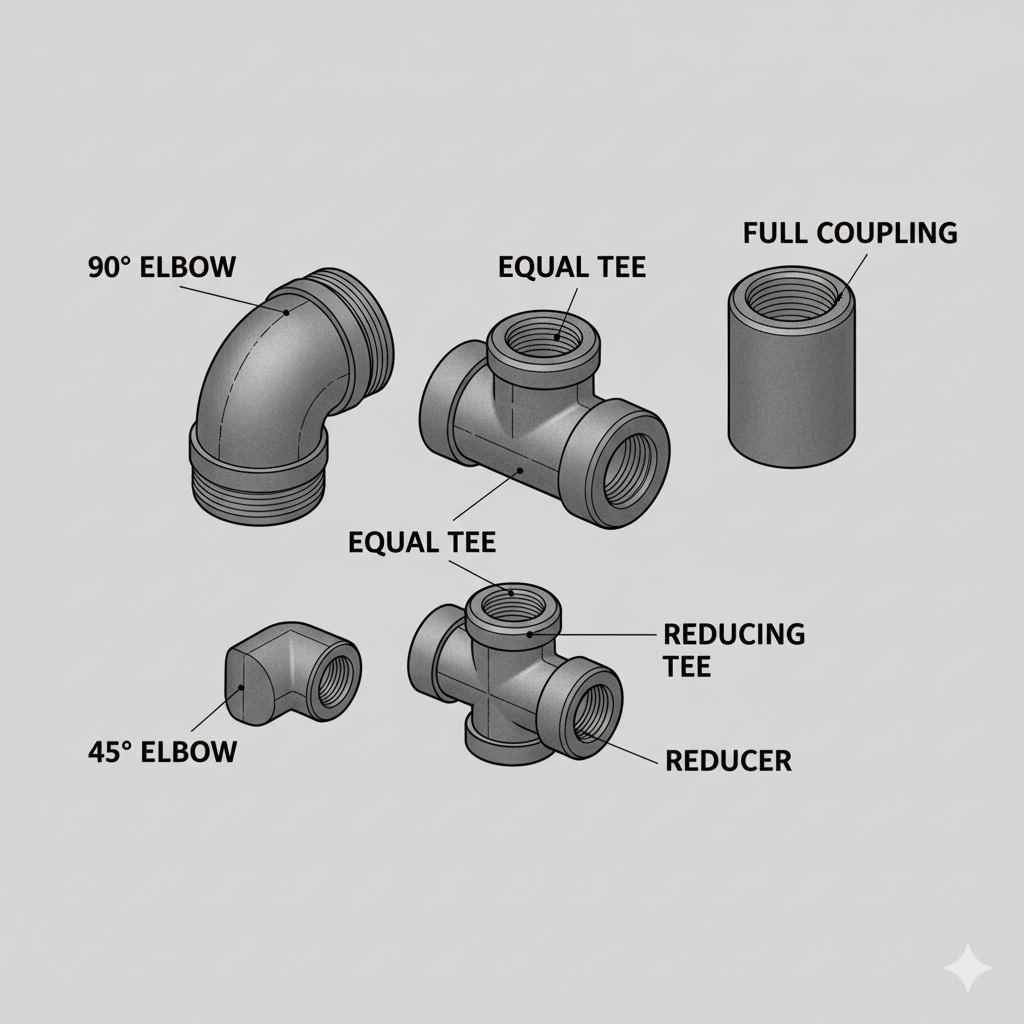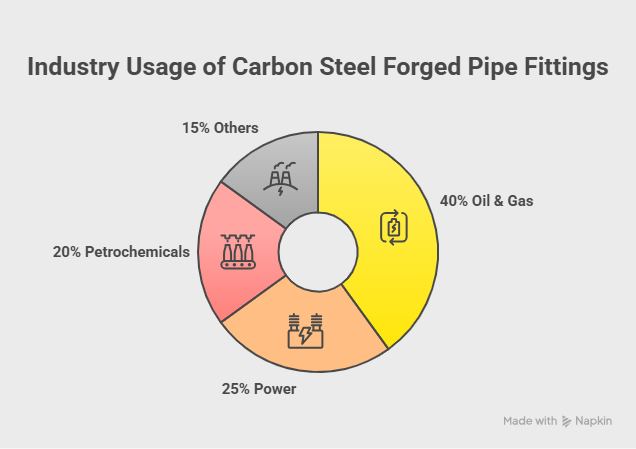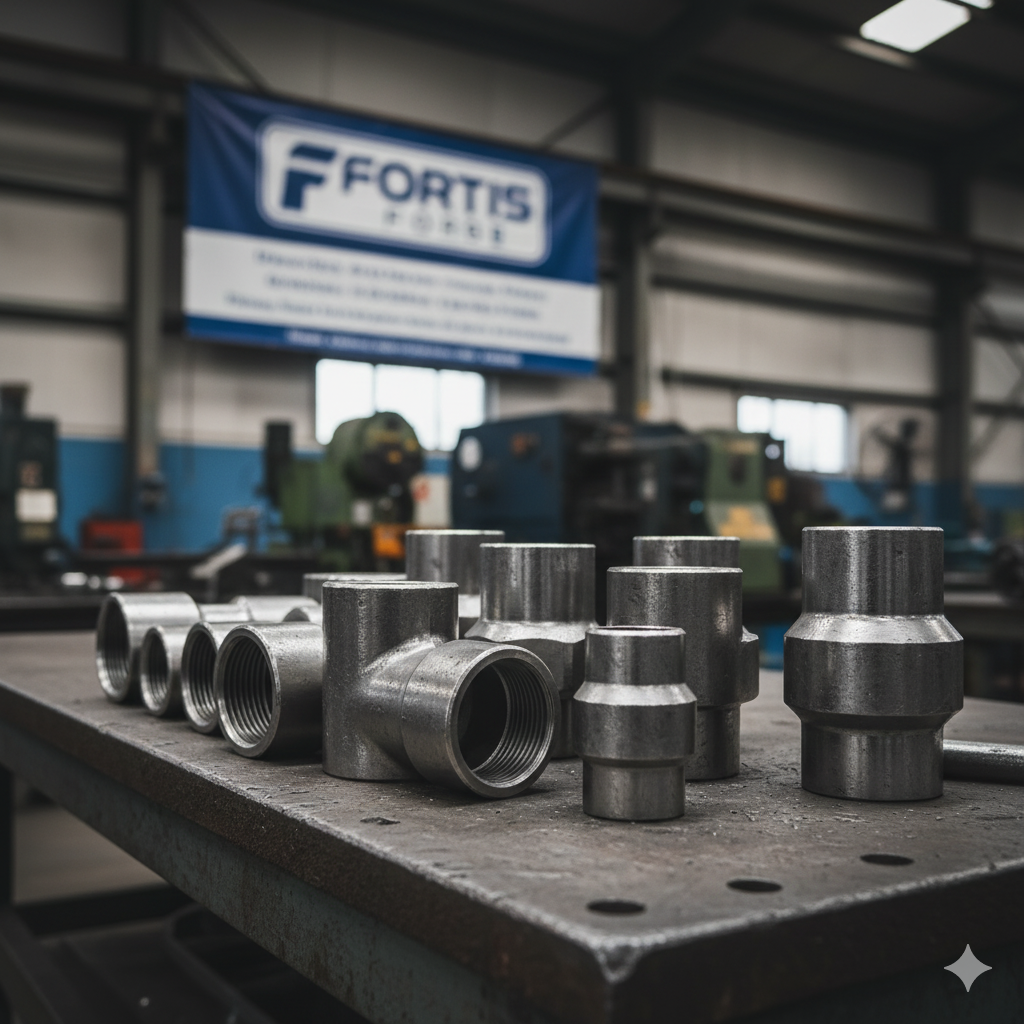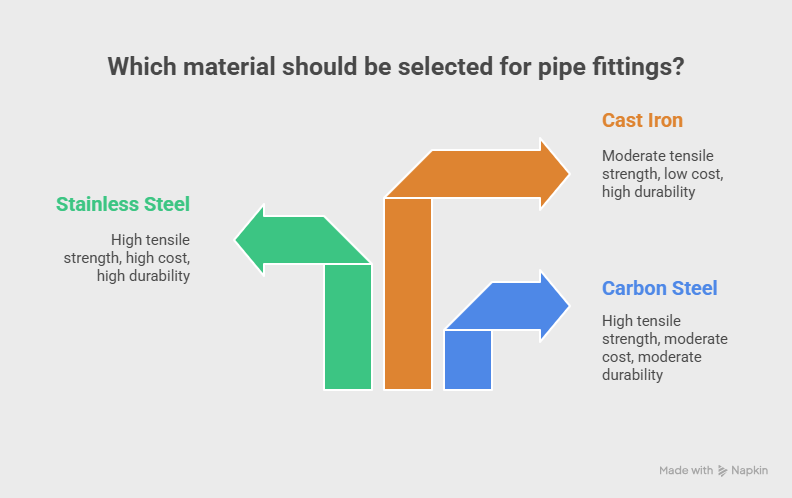Introduction
Carbon steel forged pipe fittings are vital in industries that demand strength, durability, and leak-free connections. These fittings connect pipes in oil, gas, petrochemical, and power plants. When you choose high-quality forged fittings, you invest in long-term safety and efficiency.
At Fortis Forge, we specialize in manufacturing carbon steel forged pipe fittings that exceed industry standards. Our commitment to precision and quality makes us a trusted partner worldwide.
What Are Carbon Steel Forged Pipe Fittings?
Forged pipe fittings are components shaped by forging carbon steel under extreme pressure and heat. This process strengthens the steel, making it more durable than cast or machined alternatives.
These fittings are used to connect, control, or change the direction of piping systems. Common forged fittings include elbows, tees, unions, couplings, caps, and plugs.
Why forging matters:
It eliminates defects found in cast products.
It refines the grain structure of steel.
It increases tensile strength and impact resistance.

Advantages of Carbon Steel Forged Pipe Fittings
1. Superior Strength
Forging enhances the mechanical strength of carbon steel. As a result, fittings can handle extreme pressure and temperature.
2. Leak-Free Performance
Precision machining ensures accurate threads and smooth surfaces. This reduces the risk of leaks in pipelines.
3. Cost-Effective Durability
Carbon steel fittings last longer and require less maintenance than many alternatives. Over time, they deliver excellent value.
4. Resistance to Wear and Tear
The dense grain structure resists cracking and fatigue. Industries prefer forged fittings where reliability is critical.
5. Versatility in Applications
These fittings are suitable for oil, gas, chemical, power, and water treatment industries.
Applications Across Industries
Carbon steel forged pipe fittings are not limited to one industry. Their versatility makes them a universal solution.
Oil and Gas: They withstand high-pressure fluids in refineries and rigs.
Power Plants: Steam, water, and fuel lines rely on forged fittings.
Petrochemicals: They ensure safe transport of aggressive chemicals.
Shipbuilding: Forged fittings maintain structural and operational integrity.
Water Treatment: They handle corrosive chemicals and high flow rates.

Types of Carbon Steel Forged Pipe Fittings
Elbows
Used to change pipe direction, available in 45° and 90°.
Tees
Divide or combine fluid flow.
Couplings
Join two pipes of the same diameter.
Unions
Allow easy disassembly for maintenance.
Caps and Plugs
Seal the ends of pipes.
Cross Fittings
Connect four pipes for multi-directional flow.

Why Choose Carbon Steel Over Other Materials?
Comparison with Stainless Steel
Stainless steel resists corrosion better. However, carbon steel is stronger and more affordable. For high-pressure applications, carbon steel is often the first choice.
Comparison with Cast Iron
Cast iron is brittle and prone to cracking. Forged carbon steel, on the other hand, withstands impact and vibration.
Comparison with Plastic Fittings
Plastic may work for low-pressure systems, but it cannot handle industrial demands. Carbon steel forged fittings deliver unmatched performance.

Fortis Forge: Commitment to Quality
At Fortis Forge, quality is more than a promise—it is a guarantee. Every carbon steel forged pipe fitting undergoes rigorous testing.
Our Manufacturing Excellence
Advanced forging technology.
CNC machining for precision.
Heat treatment for consistent properties.
Non-destructive testing (NDT) to ensure defect-free products.
Certifications
We comply with ASME, ANSI, DIN, and other global standards. Our certifications assure reliability, safety, and customer trust.
Environmental and Safety Considerations
Forged fittings reduce material waste compared to casting. The forging process also extends the lifecycle of products. This lowers replacement needs, saving resources and reducing carbon footprint.
Safety is a priority at Fortis Forge. Our fittings minimize leakage risks, preventing environmental hazards and workplace accidents.
How to Select the Right Forged Pipe Fittings
When selecting fittings, consider these factors:
Pressure Rating: Match the fitting rating to your system pressure.
Material Grade: Choose the right carbon steel grade for corrosion resistance.
Size and Standards: Verify compliance with ASME or DIN standards.
Application Needs: Assess temperature, medium, and industry requirements.
Supplier Reliability: Partner with a trusted company like Fortis Forge.
Why Partner with Fortis Forge?
Global Reach: We serve clients worldwide.
Customer Focus: Tailored solutions for unique applications.
Competitive Pricing: High value without compromising quality.
Timely Delivery: Reliable supply chain management.
Our mission is to provide fittings that not only meet but exceed customer expectations.
Conclusion
arbon steel forged pipe fittings are the backbone of modern industry. Their unmatched strength, durability, and cost-effectiveness make them indispensable.
Fortis Forge stands at the forefront of manufacturing excellence. With advanced technology, strict quality control, and a customer-first approach, we are your trusted partner for forged pipe fittings.
When reliability matters, choose Fortis Forge.
